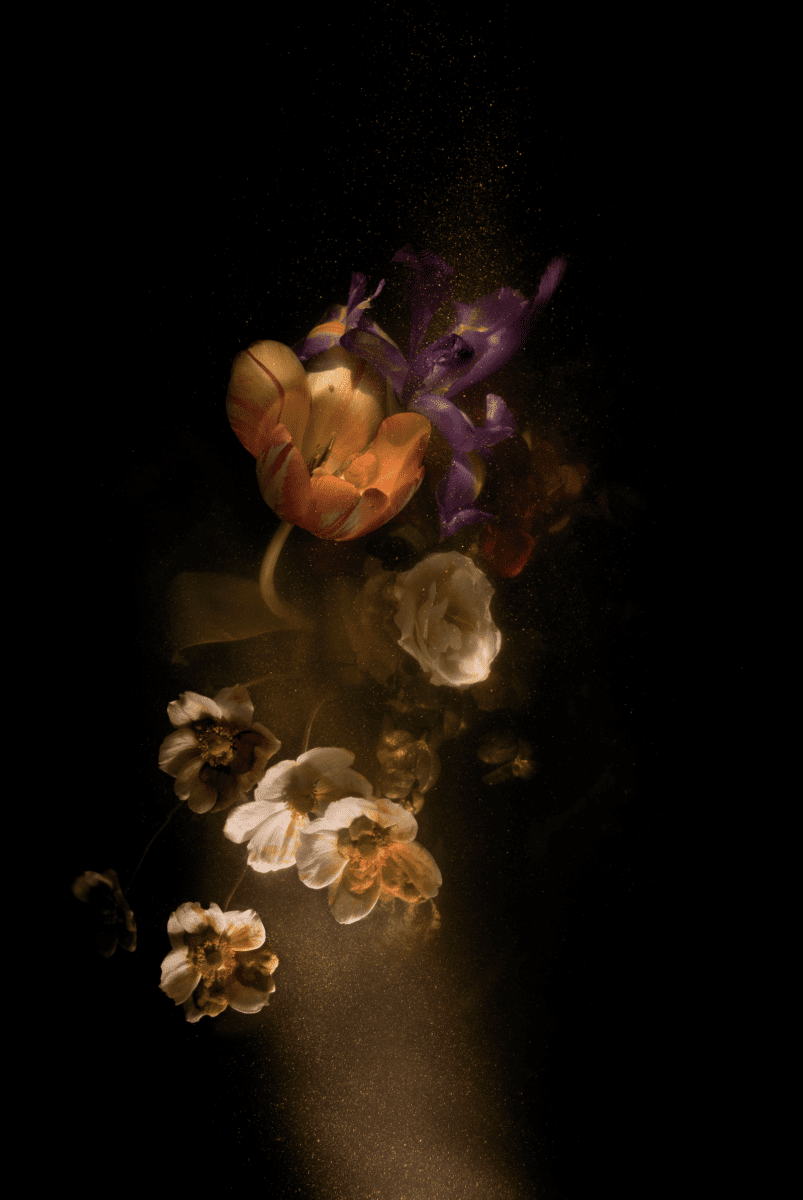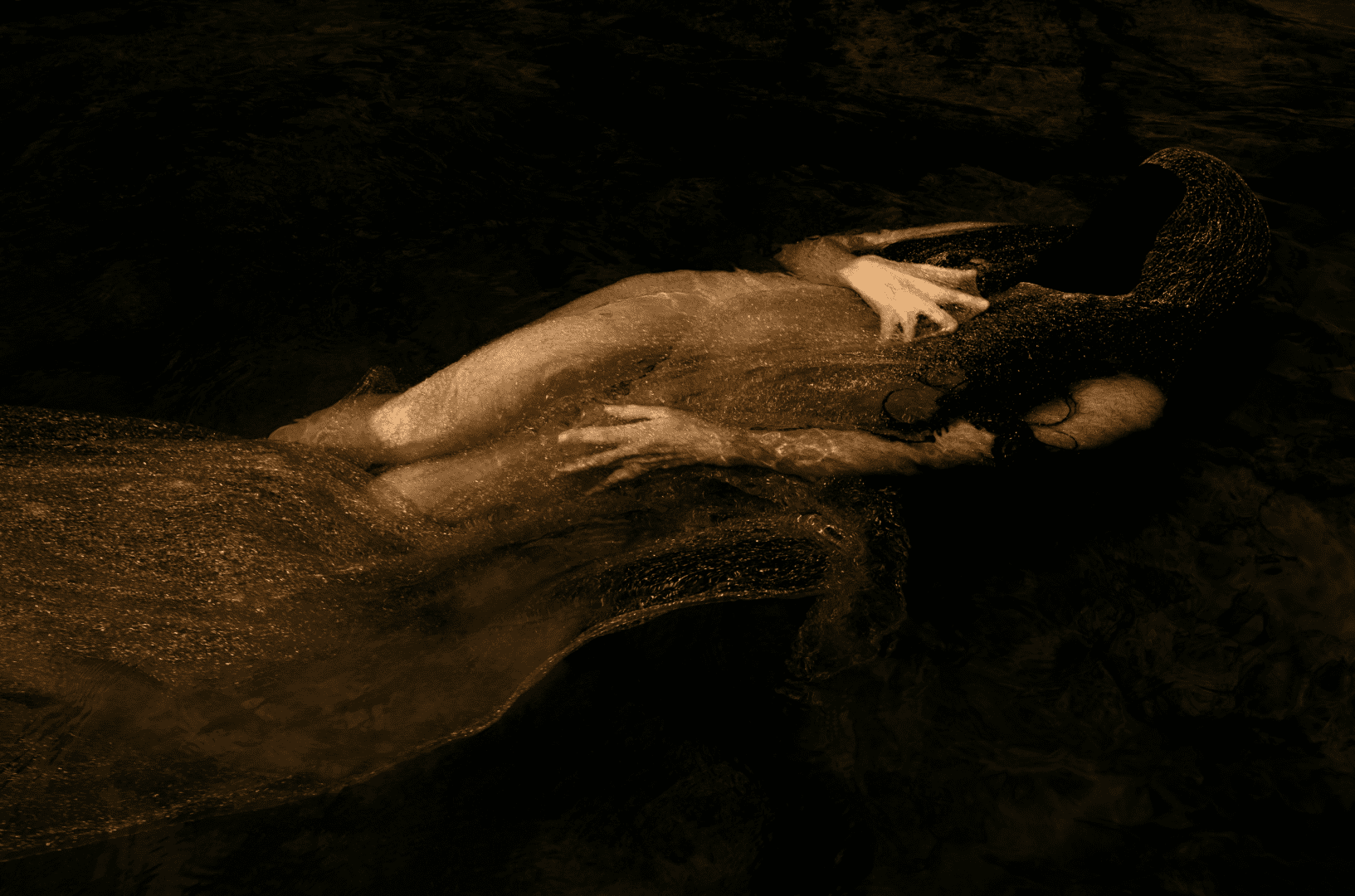You can recognise Lilli Waters’ (b. 1983) images for their painterly, Pre-Raphaelite aesthetic. The photographer combines macabre, foreboding elements with a rich palette and sensitive use of light. Her fine art practice explores the human condition, often capturing the female body in haunting, windswept locations. The artist uses translucent fabrics and long hair to obscure the identity of her subjects, suggesting that the image is just as much a mirror for the viewer, as it is a portrait of someone else.


Orpheus (2021) was constructed underwater using shells, fish and flowers. The series of ten large-scale photographs offers a new take on Dutch masterpieces of the 17th century, featuring objects that emerge from dark waterscapes and collide in otherworldly and ethereal configurations. Flowers seem to swim in the darkness, floating alongside jewel-like creatures. Everything is dramatically shrouded by golden nets and sheets of suffocating cellophane.

Waters explains: “We are living through an age where our lens on the world must constantly shift and refocus as new ideas, crises, social movements and the natural environment rapidly changes. A level of poetic consciousness is required to navigate this new and, at times, hopeless landscape. Orpheus was a poet, a prophet and a musician in Greek mythology who, at the end of his life, worshipped no god but the sun. For these images, I wanted Orpheus to be a woman who is glistening, oracle-like, asleep on a dark sandscape. The viewer is invited to embrace their own mortality and energy for change simultaneously.”


At first glance, these images might depict a romantic ideal of beauty and an stereotypical equivalence between the fertility of the female body and the landscape. Yet, in the era of #MeToo and impending ecological crisis, the artist offers a critical and much-needed female gaze. She portrays the conundrum of simply existing within a woman’s skin – asking vital questions about how to express physical agency in a society that constantly objectifies women, and irrevocably wreaks damage on the environment.
Words: Emma Jacob
All images courtesy Lilli Waters.





